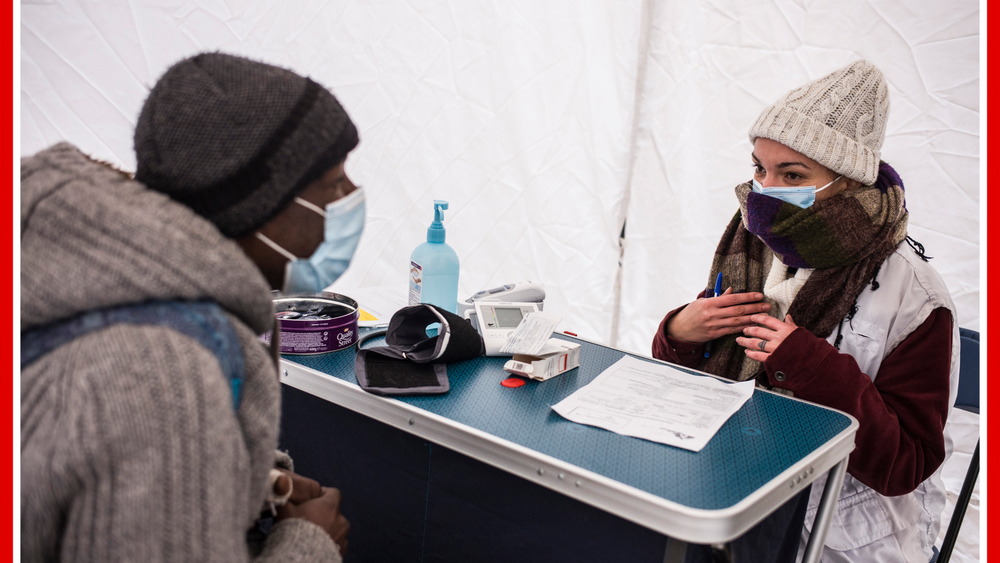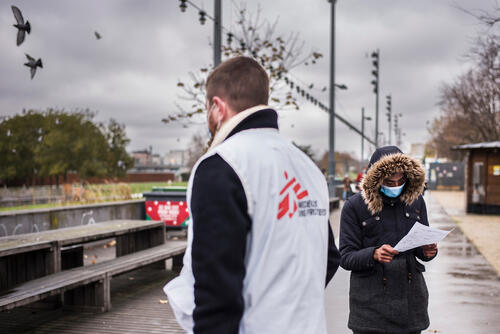Europe has not escaped COVID-19 nor the constraints it has brought – indeed at times it has been the epicentre of the pandemic. From France and Belgium to Spain and Italy, there have been periods when hospitals have reached maximum capacity and healthcare staff have had to work 24-hour shifts. All of this has impacted care for patients with medical conditions not related to COVID-19. In Paris, many homeless people, including migrants and asylum seekers, have had to cope with changes to, or even the closure of, their usual care facilities or the associations that support them. In response, MSF teams have been running mobile clinics for people living on the streets, many of whom are the invisible victims of the knock-on effects of COVID-19.
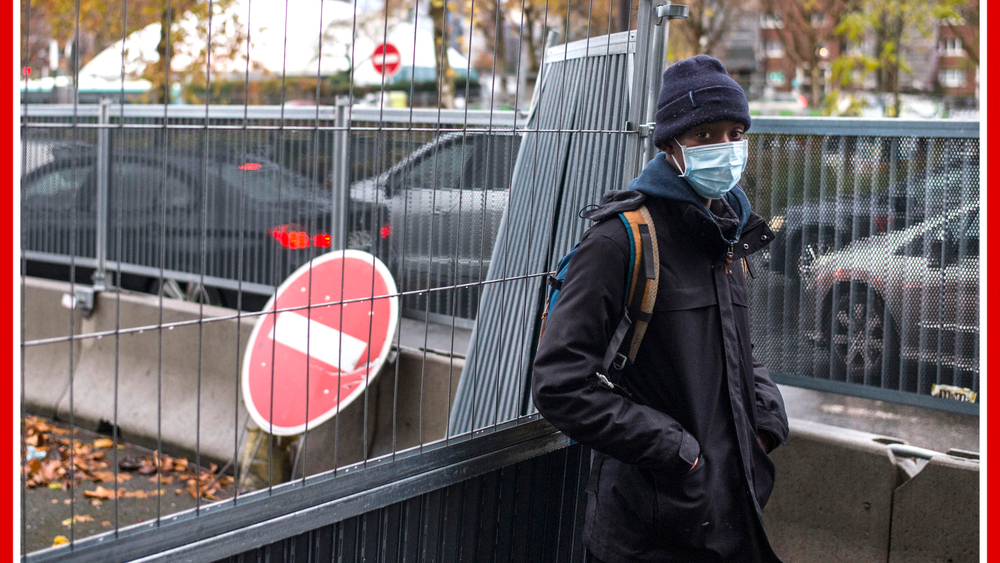
“I cannot see a doctor because I don’t have any documents”
Mobile clinics for homeless people

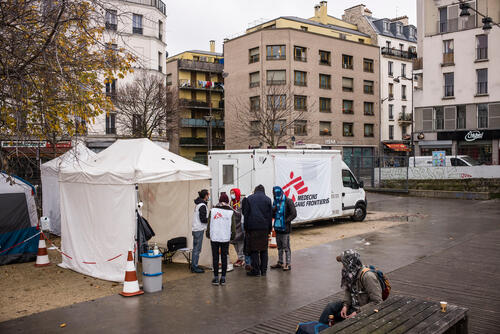
Composed of a doctor, two nurses, a logistician and a social worker, MSF mobile clinics in Paris provide basic healthcare, information and COVID-19 tests to people living on the streets.

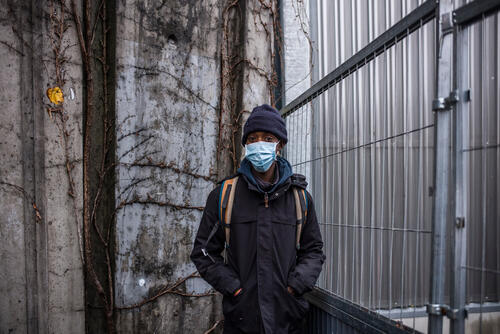
Seco Jallow is a homeless migrant living on the streets of Paris and sleeping under a road bridge. He came for medical care to one of MSF’s mobile clinics, which were set up during the second wave of the pandemic in Paris.

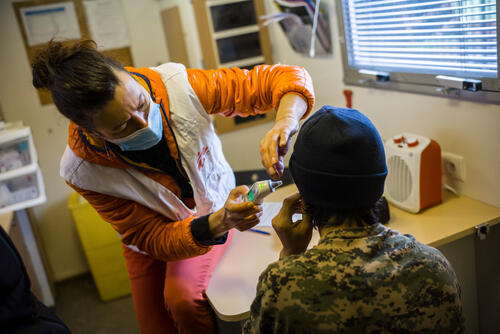
Alix Bommelear is an MSF doctor working in a mobile clinic in the north of Paris. She spends her days providing medical care to homeless people, most of whom are migrants or refugees who cannot access medical care elsewhere.
